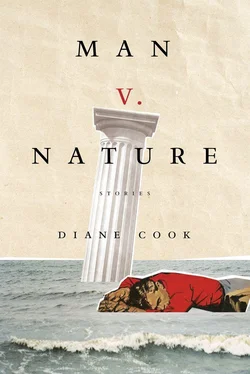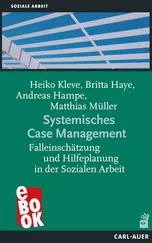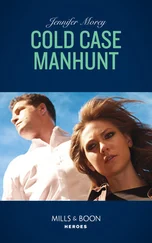We decide on a race through the woods, and mark the route with bones hung from trees. It is deemed a fair course because sometimes it’s hard for tall boys, and other times for short. There are log piles to climb over, so speed alone won’t win, and confusing turns to navigate, and false paths, so cleverness helps.
We gather at the start, shake and stretch our arms, legs. We are very nervous, and some boys cry. Not me, though. I’m a forager, and I know the forest well. Carl looks quick and primed, like a match just getting lit. Alfred seems bored.
He calls us to the line, and we’re off.
I reach the end first, with Carl close behind. The rest of the boys stagger in. Small Michael is last. He’s bitterly disappointed, and in a way so are we. He’s very small, and there are so many of us.
We carry him back to the camp and throw him a party as the sun slides behind the cold horizon. We weave him a crown from dry river grass, pretty it with evergreen. We tell his stories, like how the first time he arrowed a deer, he laughed so hard he trickled pee. We overmarvel at his knowledge of star names, at his singing voice. We ask him to sing one more of his midnight songs.
But he shakes his head. Staring into the fire, he hands Alfred the large stone. We agreed that this would be the signal, and that once the stone is in play, no one can object.
If possible, Small Michael says quietly, tell my mother I didn’t die in the Chute. I killed a bear for you all and suffered mortal wounds. He tilts back his head.
We look away as Alfred slits his throat.
We play juggle ball, bone toss, tug-of-war in heats. We make new obstacles and race the course. We run, jump, crab-walk, balance on our hands. Whittling an arrow that pierces or a whistle that toots is combined with a tree-climb or race to even it out; whittling is a fine skill, but any boy can run for his life.
After each game we build a fire, weave a crown, tell stories, celebrate the boy who lost, until the stone is in play. Then we eat. We say we hope we’ll never have to compete again.
A week passes, sometimes longer. Then we decide on the next game. We vote, and everyone has to agree. It can take a few rounds, some arguing, before we are ready to play. Fred, Frank, Steven, and Joe go this way.
One morning, warming by the fire, we realize Brian is missing. George and I are picked to find him.
Alfred grabs my shoulder, thrusts the big knife at me. The woods are dangerous, he says.
I laugh. The woods aren’t dangerous.
The woods are what’s in them, he replies.
George takes the knife.
We find Brian a ways from camp. He clutches a skin pouch that holds a few slivers of smoked meat, a handful of secret nuts. His leg is caught in a metal trap.
How’d this get here? he cries.
We shrug.
I say, Where’d you get those nuts?
We unclaw his hand. The nuts tumble to the snow, and we gobble them. Our throats tighten, our stomachs buckle and twist; they’re green nuts.
Help me out of this thing, Brian pleads. It hurts so much.
We look at the trap, tenderly finger its bloodied teeth. We try to pry them. The springs tense, the hinge squawks, rust flakes. The instrument is so old, it works wrong. Or so brutal it wasn’t made to ever let go. We shake our heads.
Please, I’ve got to get away from here. Brian’s wild eyes dart to the shadowed forest, to the treetops, to us. Then he sees the knife in George’s hand.
Relax, Brian. I say. You’re safe.
He looks at me warily. So I smooth his hair, say, Shh , like a mom. His body tightens at my touch.
George begins the cut at the knee, which seems the best way through. Brian howls, gnashes, bites through the fleshiest bit of his hand, then passes out. George works the blade diligently, pausing at times to catch his breath and wipe the sweat from his forehead. The knife slips through the final connecting bridge of tendon and skin, and the lower leg plunks to the ground. I wrap the thigh to slow the bleeding, and we carry Brian back to camp — he’s light like dry leaves.
The boys gather, murmur, Poor Brian . Brian’s a boy’s boy, well liked. We don’t tell them how we found him, and no one asks.
Alfred says, Who’s hungry?
We all are. We drank our last broth days ago.
But, Carl says.
But what?
He hasn’t played the stone. So we can’t—
Alfred kicks the stone over to Brian’s shoulder. Brian moans from under his stupor.
Happy? Alfred sneers at Carl. None of the boys argue.
Alfred kneels by Brian, examines the stump.
Did you cut this? he asks me.
George did.
I did, George says.
Alfred eyes him. Next time, bring the rest of the leg.
But the next time, it’s George who loses the game.
Soon there are just three of us: me, Alfred, Carl.
We sit around the fire, sipping broth, finishing the last of the meat. With fewer boys, we’re eating so much more. I can grab and pull at my middle again. But with each meal, our appetites only grow.
I say, Perhaps we don’t need to play. Winter must be ending. Couldn’t we all make it to spring without more meat?
Alfred shakes his head. Spring is still very, very, very far away, he says.
I swear the world is melting. But perhaps it is a trick thaw, and we’d starve again before spring truly arrived. I wouldn’t know the difference, while Alfred always seems to know. Perhaps it’s best to keep playing. I’m fed and strong. If we wait and I weaken, would I feel as confident? I look at Carl. He’s cracking his knuckles; he does this when weighing ideas. I always win, but Carl almost always comes in second. Alfred has never lost, yet he’s only been second one time.
We agree on a race through the woods, culminating in a final set of challenges. We each place one obstacle in the field across the frozen river. Mine is a high hurdle that I know I can clear, and Carl will most likely clear, but Alfred will stumble over. Carl sets two pebbles under a massive block of ice that’ll be hard for me to move, yet easy for Carl, and a breeze for Alfred. And just before the tree that will be our finish line, Alfred lays a feather.
Is that all? Carl asks.
Yes, says Alfred.
Is this a trick? I ask.
Alfred smiles and says, Just don’t rustle the feather.
Now that we are clear on the rules, we begin.
I am leading, but Carl is close behind. Alfred lags farther back than normal, seemingly exhausted. At the log pile, Carl has trouble. He is gangly, while I am compact, acrobatic. I gallop ahead.
I dart sharp out of the forest and notice a bit of give in the frozen crust of the river. I bound the hurdle and smash my shoulder into the ice block, straining against it until slowly, slowly, it creaks like a glacier and I snatch a pebble. I tiptoe in a wide loop around the feather, my eyes fixed on it, terrified a breeze will disturb it. Is this a trick? But there is no wind, and nothing happens. I’ve won.
I hug the tree and cry a little, and I have this tingling feeling, like this is how it feels to be eleven.
The sun lowers. The air freezes. I’ve been waiting a long time for Carl and Alfred to appear.
I return to camp and build a fire. My stomach gnaws itself. I fall asleep. When I wake, Alfred is at the edge of the clearing, carrying a limp Carl. Blood dapples the snow as they approach.
What happened? I ask.
Alfred lays him by the fire and sits. Carl curls in on himself. A split on his forehead oozes, his foot points in the opposite direction from his knee.
I found him a bit past the log pile, Alfred says. He must have tripped.
Carl quivers in his ball.
I don’t know what to do, Alfred says, sucking on some of the new bloodstained snow. I was losing until Carl fell. But after that, he obviously wouldn’t have finished. If I’d left him, he’d be the one to go. I carried him back here instead, and so in a way we’ve finished at the same time.
Читать дальше












